Europeans Want Companies to Behave Like B Corps: Insights From the 2023 Brand Awareness Study
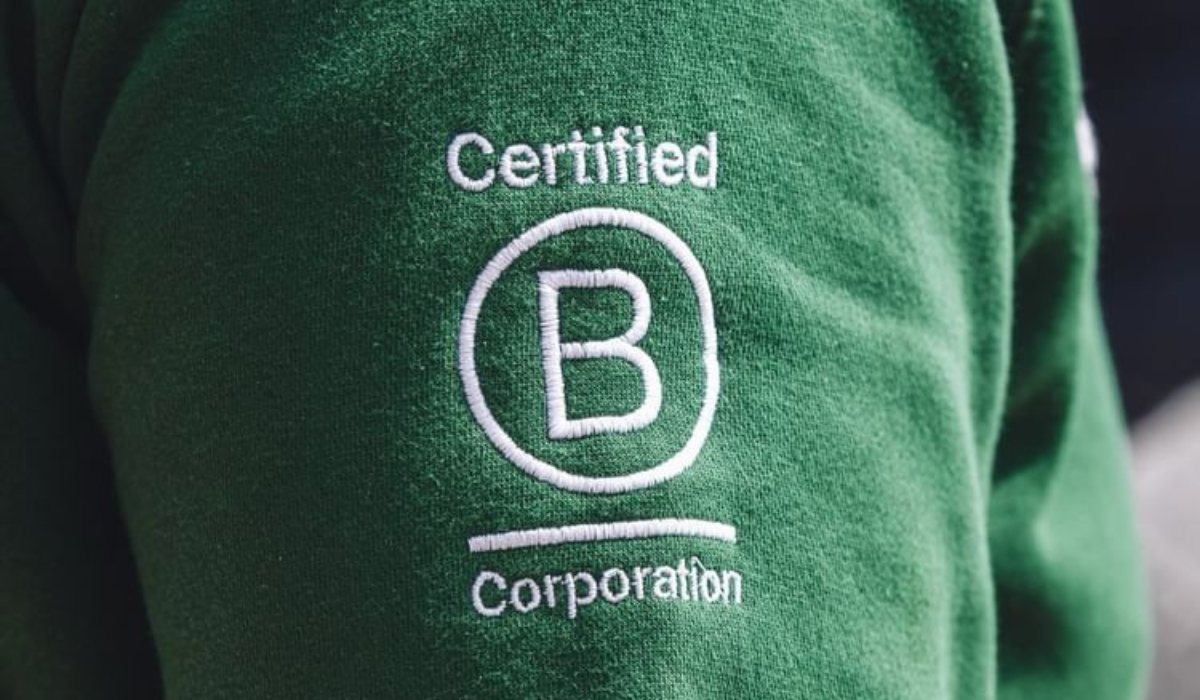
March 28, 2024 – In a world where purpose-driven businesses are not just a trend but a necessity, the B Corp movement stands as a beacon of progress. With over 8,400 B Corps worldwide, spanning 96 countries, and a strong presence of more than 3,700 within Europe, including the UK, the B Corp community is proving to be a force to be reckoned with. Yet, while the numbers speak volumes about the global growth of B Corps, the heartbeat of this movement lies in its resonance with businesses and communities on the ground.
In 2023, B Lab Europe conducted a comprehensive online survey involving over 11,000 respondents across eleven European countries to investigate consumers’ awareness of B Corp Certification and their attitude toward sustainability labels.(1)
Key Findings
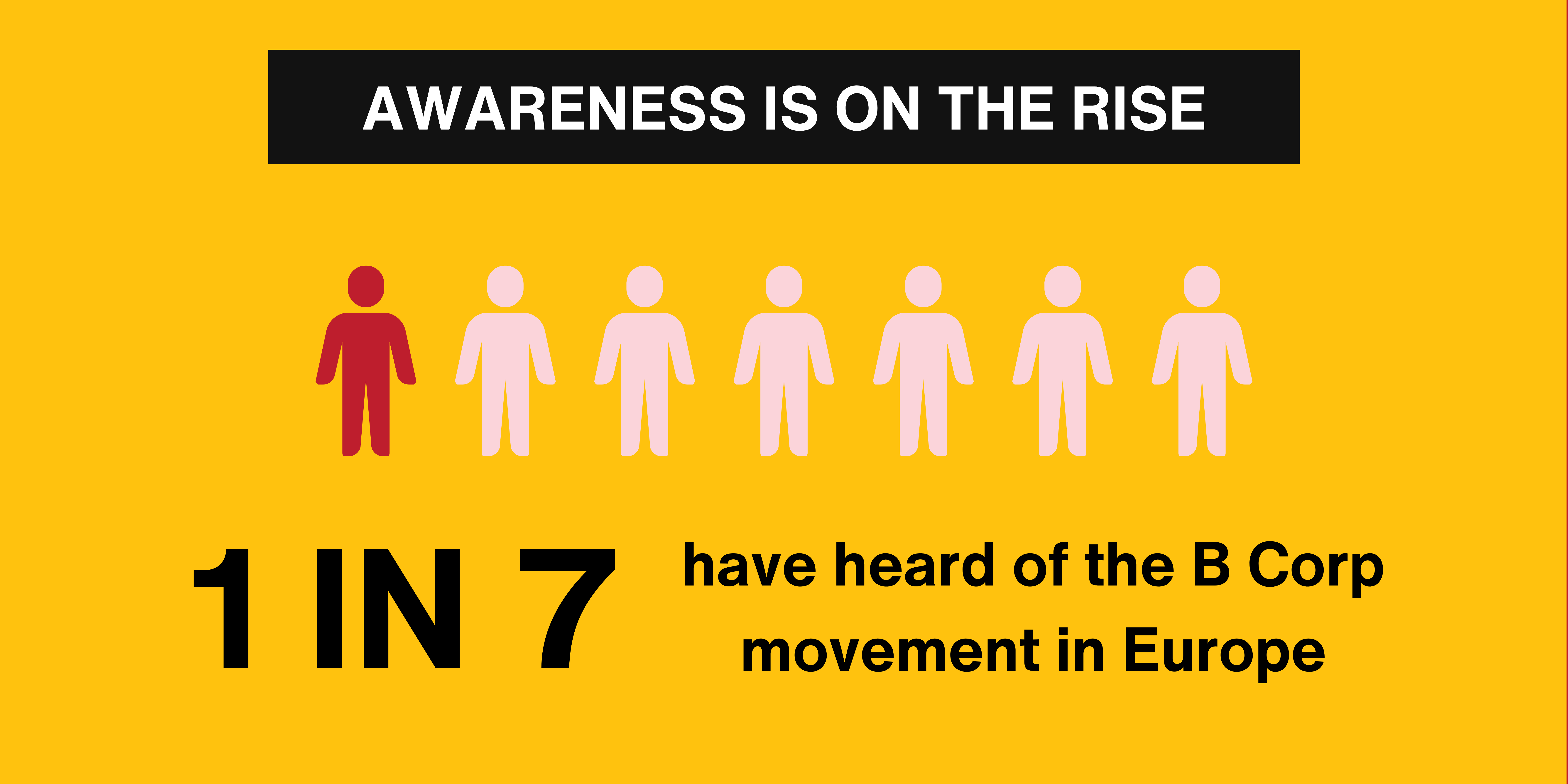
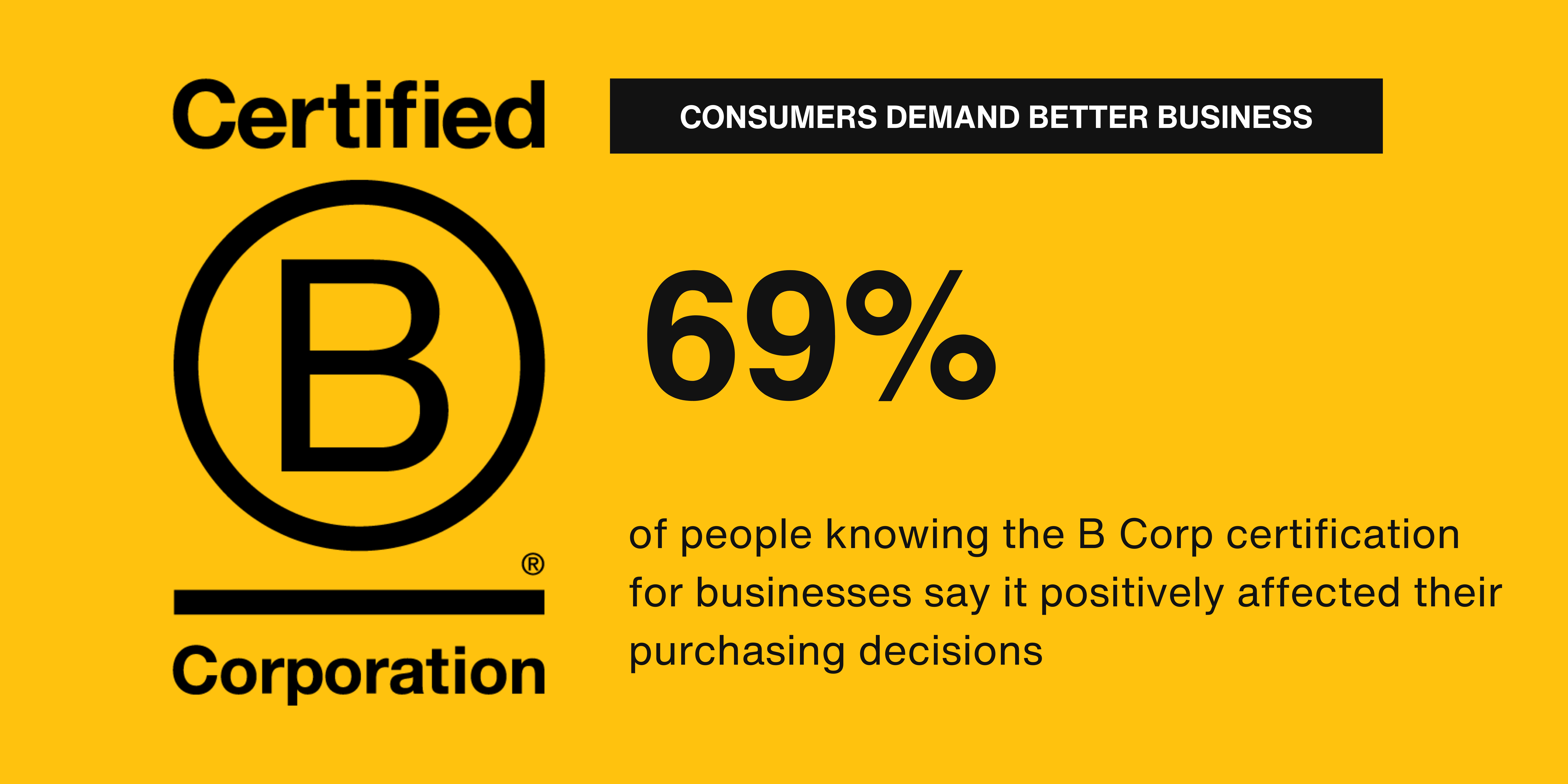
One of the key findings of this research project is that, on average, 1 in 7 people in Europe have heard of the B Corp movement. Gen Z and Millennials have the highest awareness, with over 25% having heard of B Corp. Another unveiled insight is that 69% of people who are aware of B Corp said B Corp Certification positively affected their purchasing decisions, either actively looking for them or using it to decide between products/services.
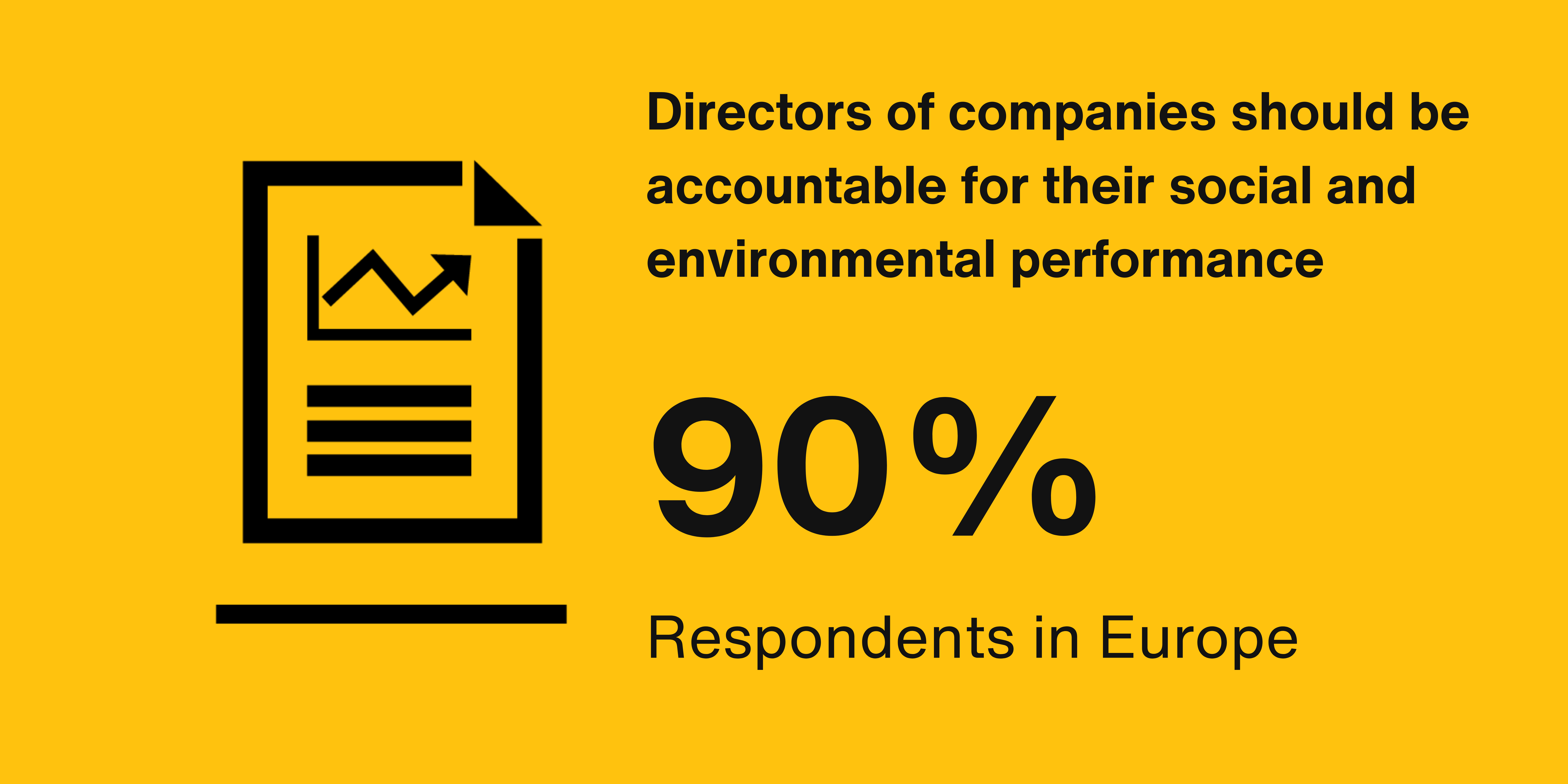
The study also clearly evidenced that almost the entirety of respondents support the responsible business values championed by B Corps, with a striking 90% agreeing that directors of companies should be accountable for their social and environmental performance. In addition, 87% of people surveyed believe that it should be mandatory for businesses to consider the interest of all stakeholders, that is, the vision of the B Corp movement.
Consumer Attitudes Towards Certifications: B Corp Recognition
Understanding consumer attitudes towards sustainability and certifications provides valuable insights into the influence of certifications like B Corp on purchasing behavior. Our survey across eleven European countries reveals a positive correlation between sustainability awareness and purchasing decisions, indicating a growing consciousness among citizens toward sustainable consumption practices. In the Netherlands, for example, 56% of individuals aware of B Corp stated that the certification positively influenced their purchasing decisions, while the figure rose to 68% in Belgium.
The study also showed that awareness and recognition of the B Corp Certification vary across demographics and regions. While Italy boasts the highest recognition rate with 19%, Denmark records the lowest, with 11%. Relatedly, countries with larger communities of Certified B Corps, like Italy (266 B Corps), France (377 B Corps), and Spain (207 B Corps), exhibit higher awareness levels. In terms of differences between demographic groups, the fact that younger respondents, particularly Gen Z and Millennials, exhibit higher awareness levels (25% of respondents, as mentioned before) suggests a generational shift towards sustainability-conscious purchasing behaviors. According to a recent study conducted by McKinsey and NielsenIQ, it is crucial for businesses to have a heightened level of awareness among Millennials and Gen Z consumers, as they are more inclined to align their expenditure decisions with their values. Similarly, in the brand awareness study conducted by B Lab U.S. & Canada in that region, Millennial and Gen Z awareness of B Corp Certification is high compared to other generations, with 18% of individuals in that group claiming to have seen or heard about B Corps, against an average of 14%.
Additional research carried out by academics confirms the significance of visual sustainability labels as an accessible and essential tool for guiding consumers toward more sustainable consumption choices. This finding reinforces the notion that such labels are perceived as cost-effective, non-intrusive means of providing individuals with relevant and transparent information that enables them to make informed choices. By doing so, these labels play a pivotal role in shaping consumer perceptions and behaviors toward sustainability, aligning closely with the findings highlighting the effectiveness of certifications like B Corp in influencing purchasing decisions. Although the aim of the B Corp Certification is not to encourage consumption, the certification mark displayed on products or service points out the opportunity to choose companies that are committed to accountability, transparency, and continuous improvement – not only to consumers but also to investors, job seekers, and potential business partners.
Across all ages, a company’s website is the most likely place people expect to find information about a company’s impact, while advertising is the lowest. However, packaging becomes increasingly important with age, while social media decreases in relevancy. The majority of respondents favour a company’s website, packaging and labels or social media compared to in store, advertisement and supermarkets.
Beyond Profit: Understanding The Meaning of B Corp Certification and Demand for Accountability
The B Corp Certification evaluates a company’s holistic impact, encompassing environmental and social performance. While familiarity with B Corp generally correlates with a better understanding, confidence levels vary across demographics and regions, with a few exceptions. The highest recognition rate that combines awareness with recollection, is among Gen Z (20%) and 25-34-year-olds (21%). Then, it decreases with age, with the lowest recognition rate among 55-65-year-olds (8%). Denmark exhibits higher confidence in knowledge (60%) compared to countries with higher awareness, such as France (46%).
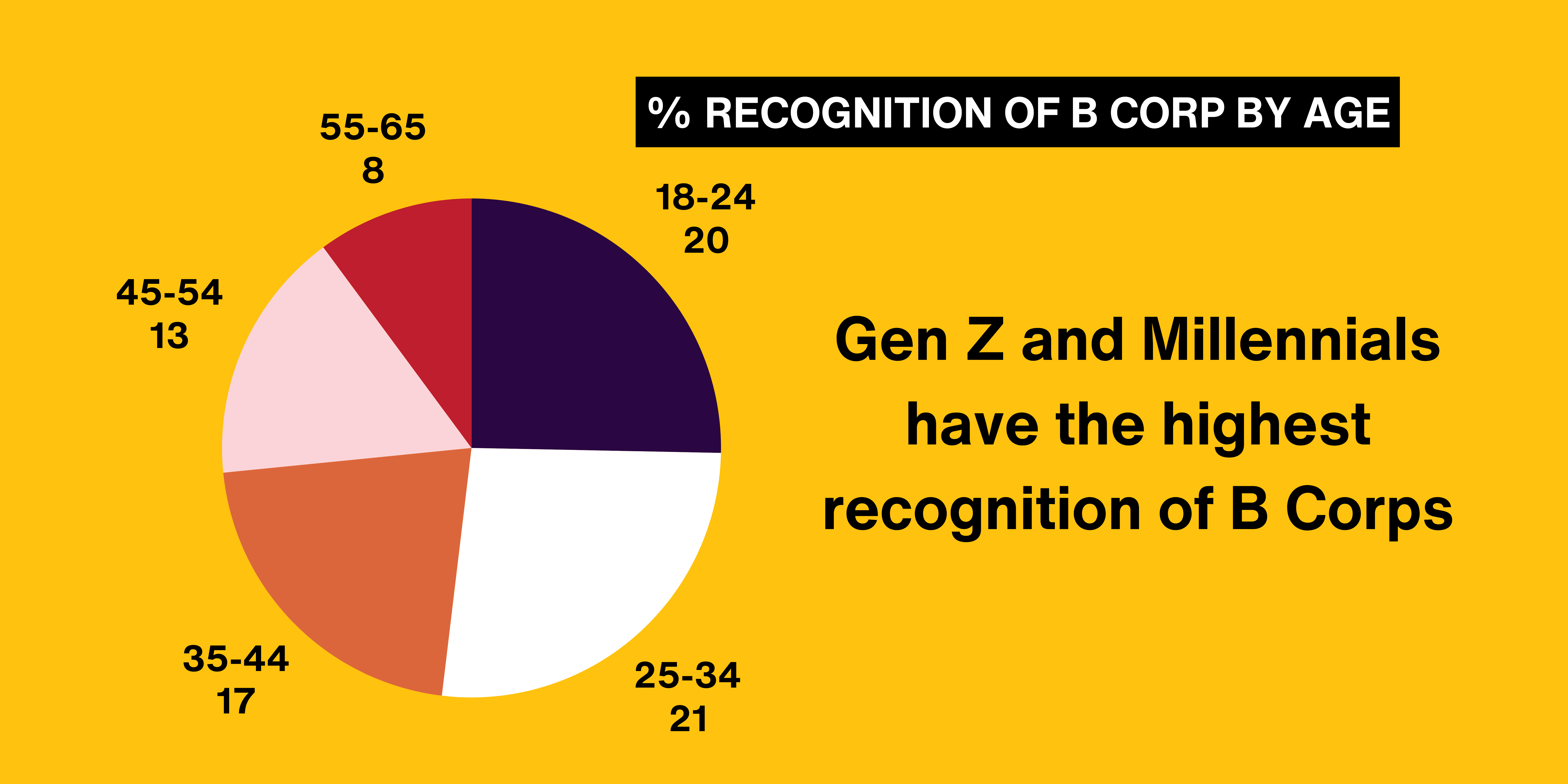
Millennials and Gen X express the highest confidence in their knowledge (50%), while Gen Z appears less certain (29%). In Denmark (69%) and Switzerland (71%), older age groups claim greater knowledge. Among those familiar with B Corp, 77% acknowledge its social or environmental performance measurement, yet only 34% specifically mention both aspects.
The findings of support for stakeholder governance and accountability from company directors strongly bolster B Lab’s advocacy efforts in the European Union. While all age groups prioritize CEO accountability similarly, the importance of stakeholder consideration (2) diminishes with age. The minority who oppose directors accountability place less importance on certification when evaluating businesses (10%) compared to their counterparts who advocate for accountability (90%). This data shows once again that how younger generations increasingly demand a world where shareholder primacy is no longer acceptable.
Respondents who know B Corp and have the lowest level of seniority (Intern/Trainee) show more skepticism toward the certification compared to other groups. This finding aligns with the 2022 study from McKinsey & Company, which mentions that Gen Z prioritizes environmental concerns more than any other generation and also exhibits the highest level of skepticism towards inconsistent messaging. In a survey conducted by McKinsey & Company in 2021, 88% of American Gen Z respondents stated that they do not trust brands’ claims regarding environmental, social, and governance (ESG) factors.
Driving Change at Scale
Amidst growing concerns about environmental degradation and social inequality, consumers are wielding their purchasing power to drive positive change. Our survey reveals a clear trend: sustainability and certifications significantly influence consumer behavior. It is a clear signal for businesses to transform the way they operate and become more accountable. Notably, the B Corp Certification emerges as a trusted symbol, with high recognition rates among younger demographics and those with higher education levels. Compared to other major certifications, B Corp was perceived as being more rigorous and trustworthy.
However, awareness alone is not enough. Understanding the essence of the B Corp Certification remains a challenge, as many perceive it solely as an evaluation of environmental practices. Businesses must transform themselves and adopt the values upheld by B Corps to stay relevant to Europe’s consumers, investors, and top talent. By championing stakeholder governance, accountability, and transparency, Certified B Corporations can lead the way toward a more equitable and sustainable future for all.
What’s the awareness of B Corp Certification in other countries?
(1) B Lab Europe conducted a comprehensive online survey involving over 11,000 respondents across eleven European countries: Italy, Poland, Spain, Belgium, Portugal, Switzerland, France, Ireland, Netherlands, Germany, and Denmark in June-July 2023. In 2023, B Lab Europe worked with Cint, a global software leader in digital insights and research technology. The responses were collected using an online survey. The participants were approached over a panel service and paid to answer the survey. Demographic quotas were in place, with 50% female and 50% male respondents. The general population quota for age was (18-65)—a fair representation of each group.
(2) Stakeholder consideration refers to the practice of taking into account the interests, concerns, and needs of all individuals or groups who have a stake in or are affected by a particular decision, action, or initiative undertaken by an organization. This approach recognizes the success and sustainability of an organization.
